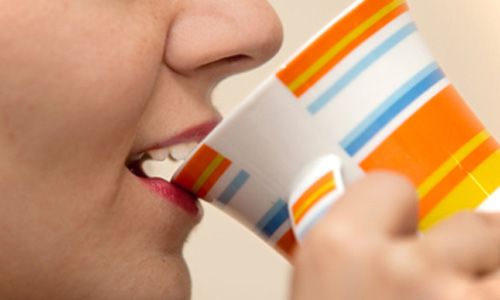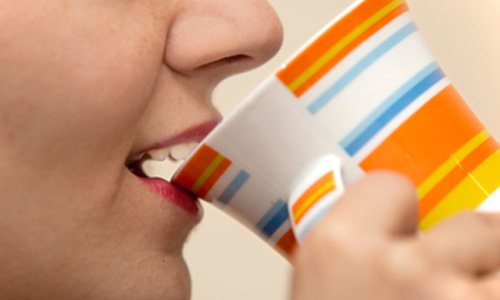
Does Tea or Coffee Stain Teeth More?
 You would think that since coffee is darker than tea it should stain teeth more; however, trying to judge how much something will stain your teeth based soley on it’s color isn’t accurate most of the time.
You would think that since coffee is darker than tea it should stain teeth more; however, trying to judge how much something will stain your teeth based soley on it’s color isn’t accurate most of the time.
The fact is that tea, specifically black teas, stain teeth more than coffee by a significant amount.
Why Does Tea Stain Teeth More than Coffee?
The reason this happens is quite simple. The theaflavins and thearubigins (also the theabrownins) which we talked about last week, that are present in oxidized teas, have a much greater affinity for the surfaces of your teeth than the staining compounds found in coffee.
Tea oxidation is not like coffee roasting. During coffee roasting, heat is applied to the beans which break down polyphenols so darker roasted coffee in fact produces less tooth staining. Tea oxidation, on the other hand, is an enzymatic process during which polyphenols combine to form the highly staining types of polyphenols known as theaflavins and thearubigins. Interestingly, heat is actually used to stop the oxidation process of tea.
If you drink fully oxidized teas, like Black and Pu-erh teas, your teeth are going to end up with more staining than if you drank coffee.
This news is a huge win for coffee drinkers out there. However, for all of you out there who really love black teas and don’t want to switch to a less oxidized tea, we will be going over a few different tricks in the coming weeks that you might be able to try with your tea in order to reduce staining.